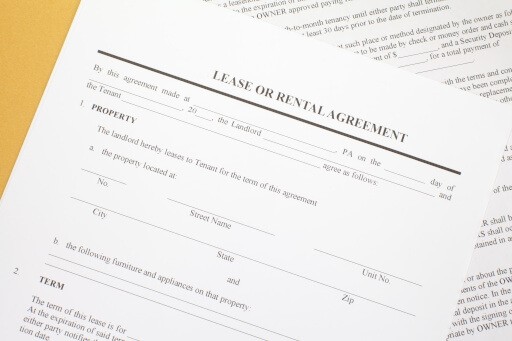Both landlords and tenants know that life happens. Friends and family go through tough times, a budding relationship gets serious, or a short visit becomes a weeks-long hangout. Empathy should never go out the window, however, as a landlord you should know that it’s in your best interest to have every adult living in your rental property on the lease. If your tenant moved someone in without your permission, you need to address the situation. When short-term guests become long-term residents, regardless of the situation, that guest must be added to the lease agreement. In the long run, long-term guests can put your rental and its tenants in a difficult situation.
What Is a Long-Term Guest?
It should be apparent that the term “long-term guest” is contradictory. A short-term guest’s stay is commonly understood to be around one to two weeks. Long-term guests are individuals who have taken up residence in your property without approval or permission.
Most of the time, they move in under the assumption that they are only going to be staying for a few weeks. Before you know it, they have been living there for months, never having received prior approval. They think of themselves as “long-term guests.”
This may be the child of a parent that’s fallen on hard times, a live-in partner who isn’t on the lease, or a friend in need who’s between apartments or jobs. These situations can be difficult for both the tenant(s) and the landlord. It’s important to be understanding, but once these guests’ stay goes beyond a few weeks, the lease should reflect their presence.
When Does a Guest Become a Tenant?
This depends on your state and local laws, but any guest that ends up staying for more than a few weeks with no set date to leave is erring on the side of a permanent tenant. There are other factors to consider too. Does this person have their own key to the unit? Are they receiving mail addressed to their name to the rental? Do they have another residence? These are all important factors to consider before you approach a long-term guest about their presence in your rental.
Liability and Accountability
When these extra tenants fly under the radar and remain off the lease, they remain immune from the terms and conditions that the other tenants have agreed to. Not only can you not obtain rent from these types of “guests,” but if they cause damage to the rental or endanger your signed tenants it can be extremely difficult to hold them accountable.
Accounting for new residents isn’t just to protect you, it’s to protect your tenants. Long-terms guests can be a serious inconvenience to both you, the landlord, as well as the tenants on the lease, so make sure to account for these individuals as soon as possible.
Tailor the Lease Appropriately
It’s important to make the limits of occupancy of your unit clear to your tenants. This starts with an easy-to-understand tenant guest policy in a standalone clause that addresses how long a tenant can have a guest. For example, you may want to set a limit on the number of consecutive days a guest can stay. This way you can prevent significant others from slowly becoming permanent residents. It might also be wise to limit a guest’s stay to no more than 30 days in a set period of time, such as three or six months. No matter what limit you impose, make sure to check your state and local laws to be sure of the number of adults legally allowed per bedroom and/or unit. Your state should also have set limitations on long-term guests and ways you can enforce these limitations.
Be Sure to Screen
A tenant screening process is a no-brainer for any landlord, but it’s especially important if you’re moving to add an extra tenant that’s already been residing in your unit. If you’re thinking about adding a long-term guest to your lease agreement, make sure they undergo the same process as any other potential tenant would. It’s possible the current tenants avoided adding their guest to the lease because they wouldn’t pass a credit or background check, so cover your bases appropriately.
Apartments.com makes it easy to screen tenants and get the information you need. Unlike our competitors, who use various third-party resources to collect information, we partner with TransUnion to provide you with screening reports for evictions, credit, and criminal history.
Refusal to Sign
So you’ve discovered that your tenants have a long-term guest who shows no signs of leaving, or maybe they’ve approached you about adding another resident to the property. Either way, should that guest refuse your attempts to sign them to the lease, or their addition to the lease would violate the occupancy laws in your area, you may be within your rights to terminate the lease agreement and evict your tenants.
This may seem harsh, especially if the addition of another lessee would be within occupancy limits of the unit, but as a landlord it’s important to hold your tenants accountable for every condition of the lease. If you let one instance slide, what’s to stop your tenants from trying to evade damage costs, late rent fees, or other serious lease violations?
Don’t Be Too Harsh
Your rental property is important to you. After all, it’s your source of income, and chances are you spent a lot of money to make it the best home for your tenants. While long-term guests can bring a lot of confusion and potential risk to your tenants, it’s important to step back and realize that like you, your tenants and their guests are people too. Don’t impose an overly-strict limit on overnight guests. You run the risk of having your tenants hide guests — or other unwanted behaviors — from you. Be communicative. Be upfront. And most importantly, be understanding.
Being a landlord is no easy job. From writing a lease, screening applicants, and maintaining your rental, there’s a lot of stress to handle. When it comes to long-term guests, your stress may just shoot through the roof. After all, long-term guests pose a risk to your tenants, your rental, and your bank account. Hopefully we’ve shown you that by using the appropriate language in your lease, screening long-term guests appropriately, and acting swiftly when the situation can’t be resolved, you can deal with these less-than-ideal situations appropriately.











